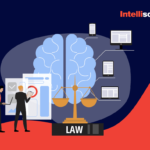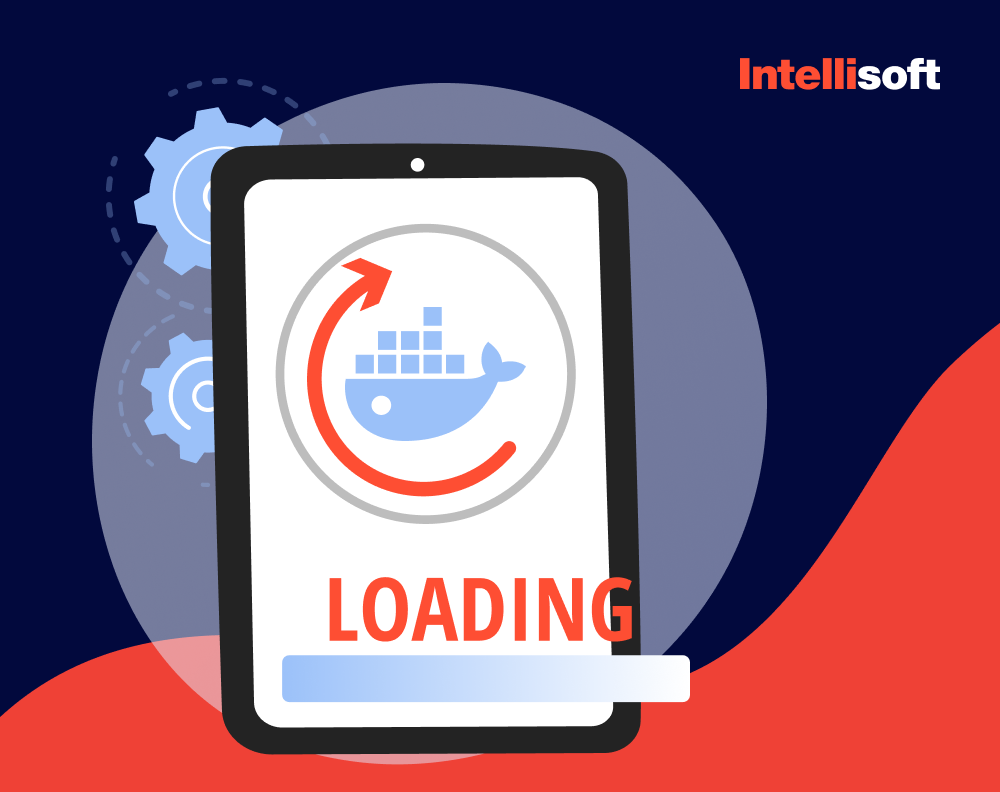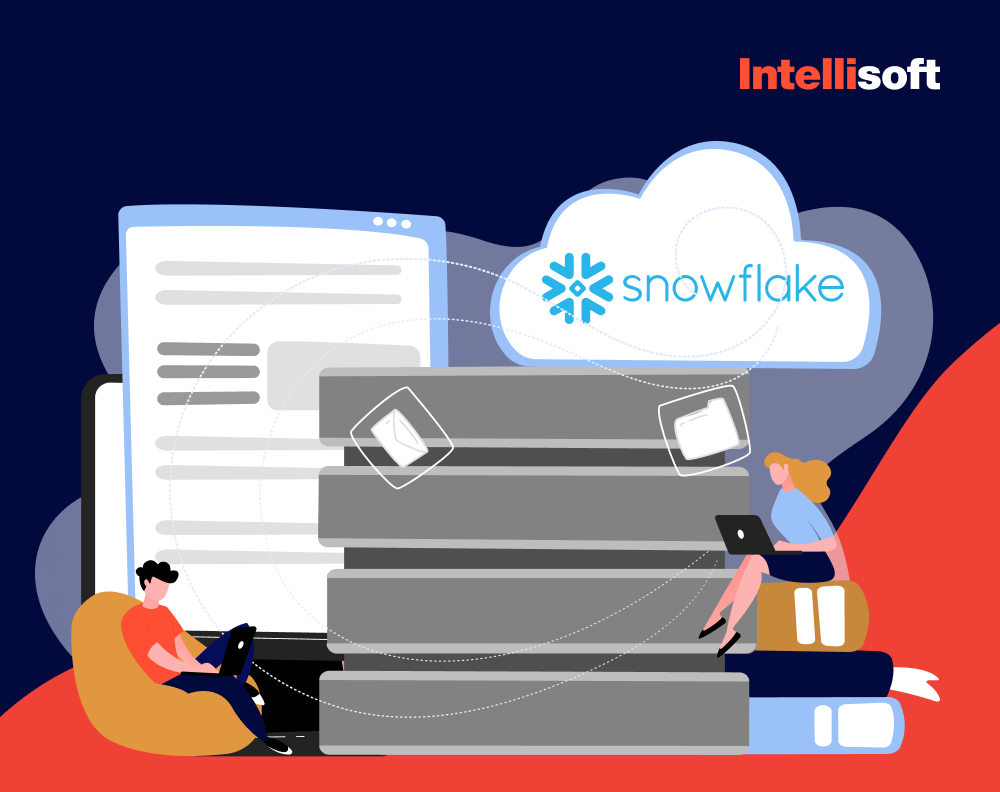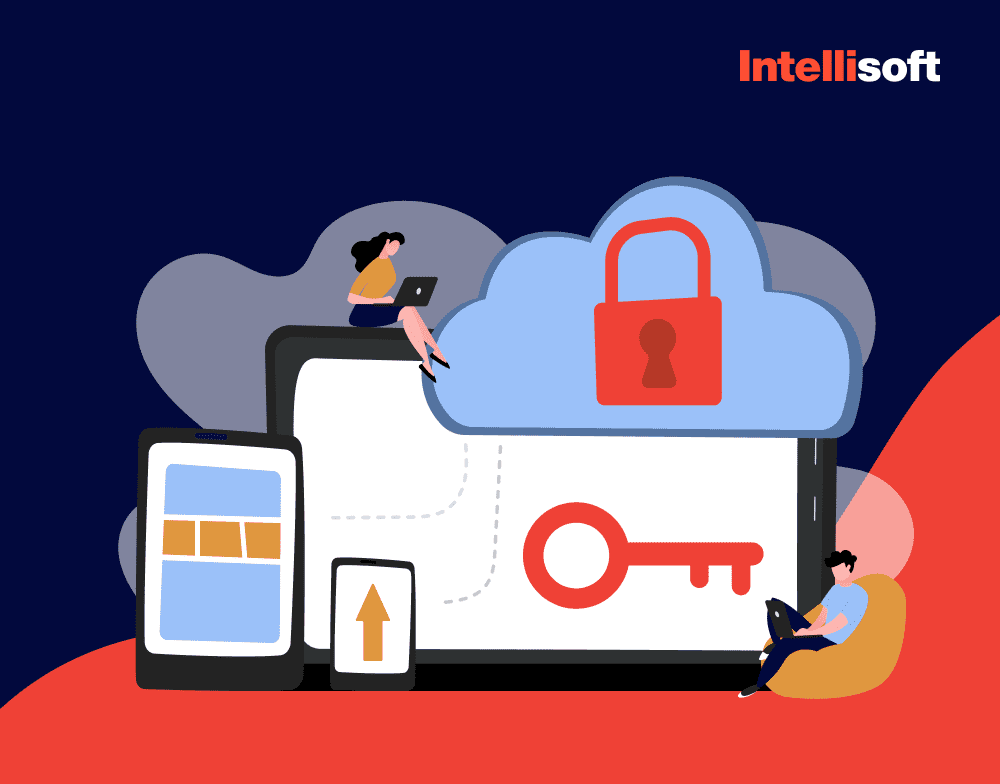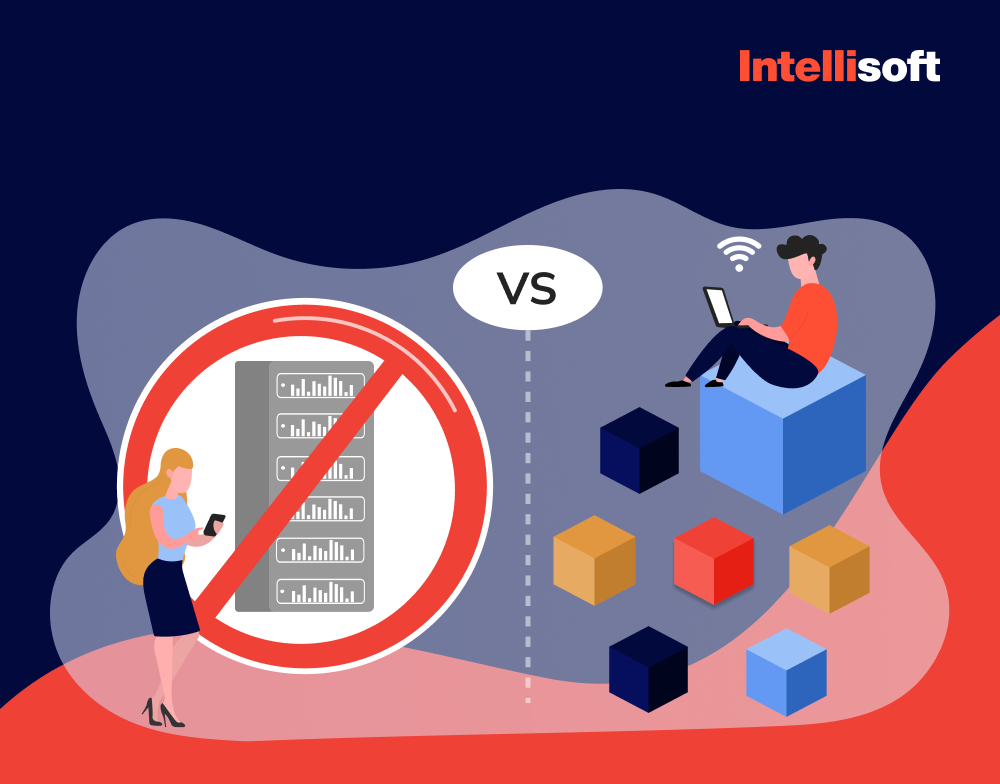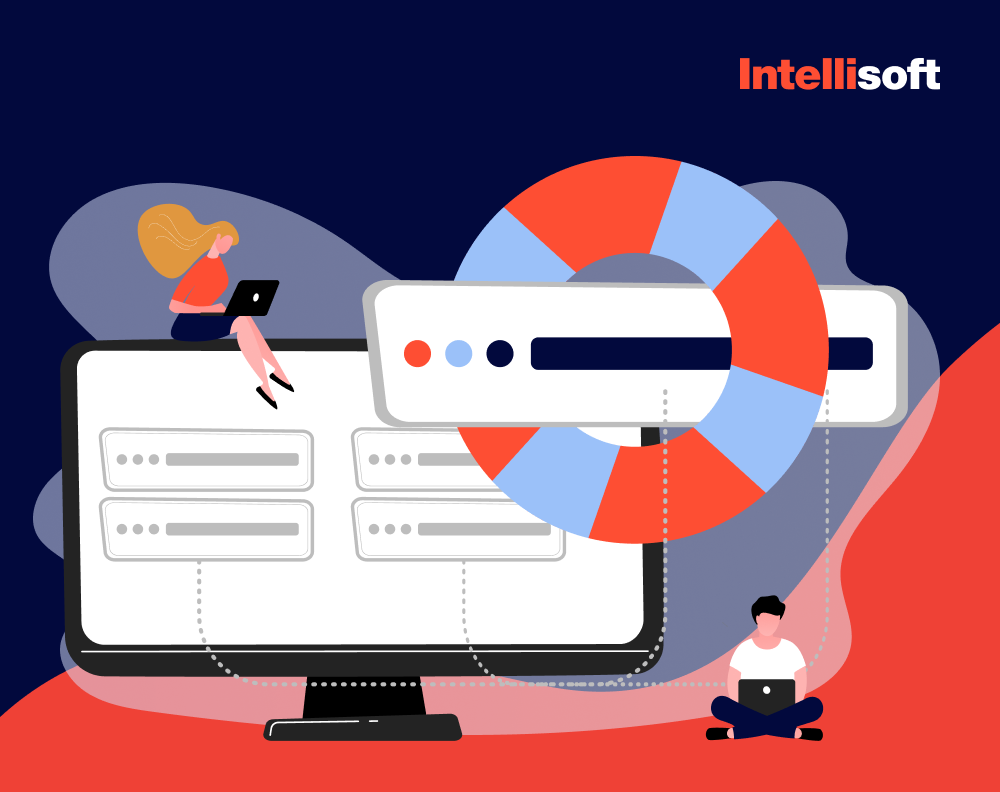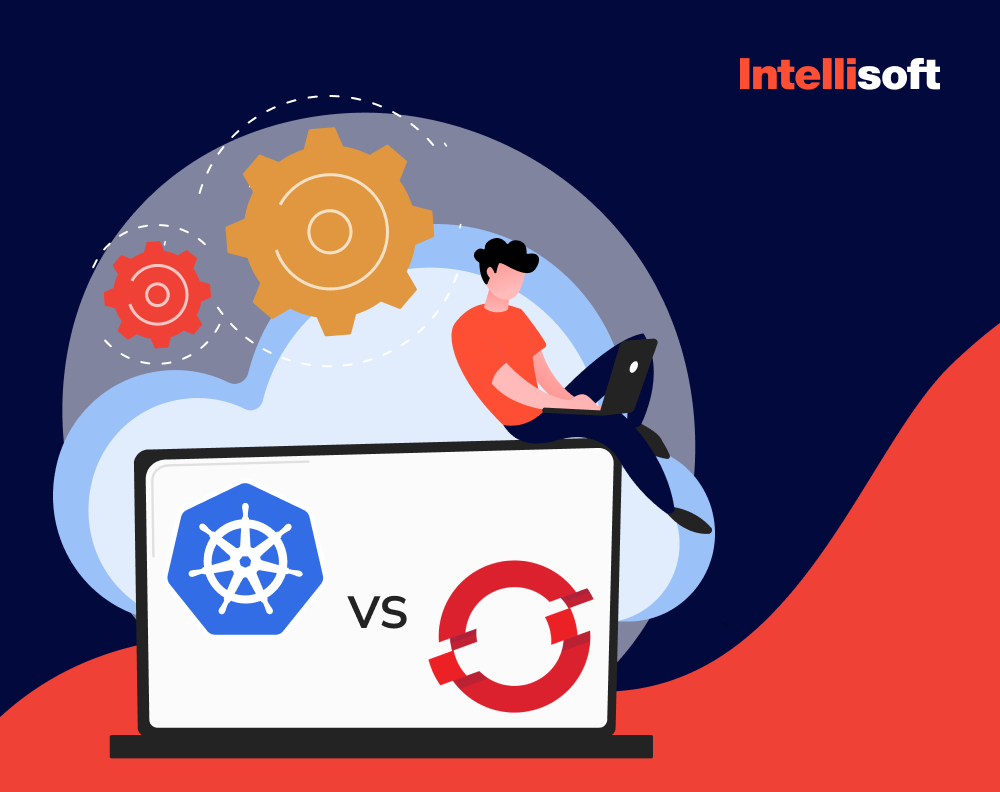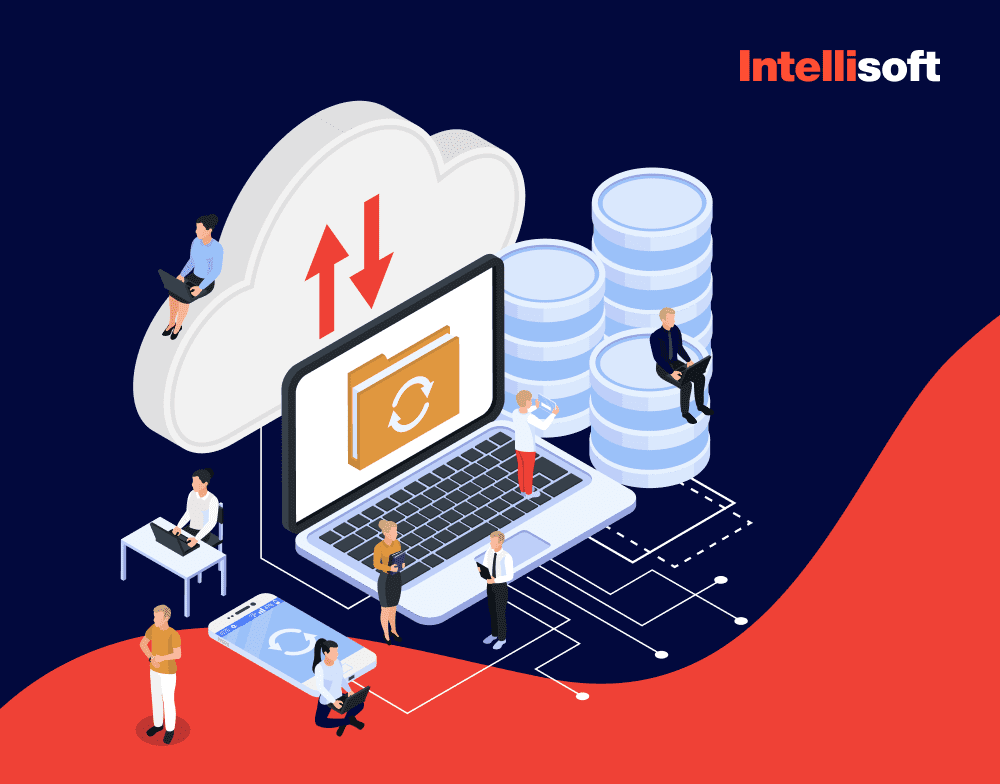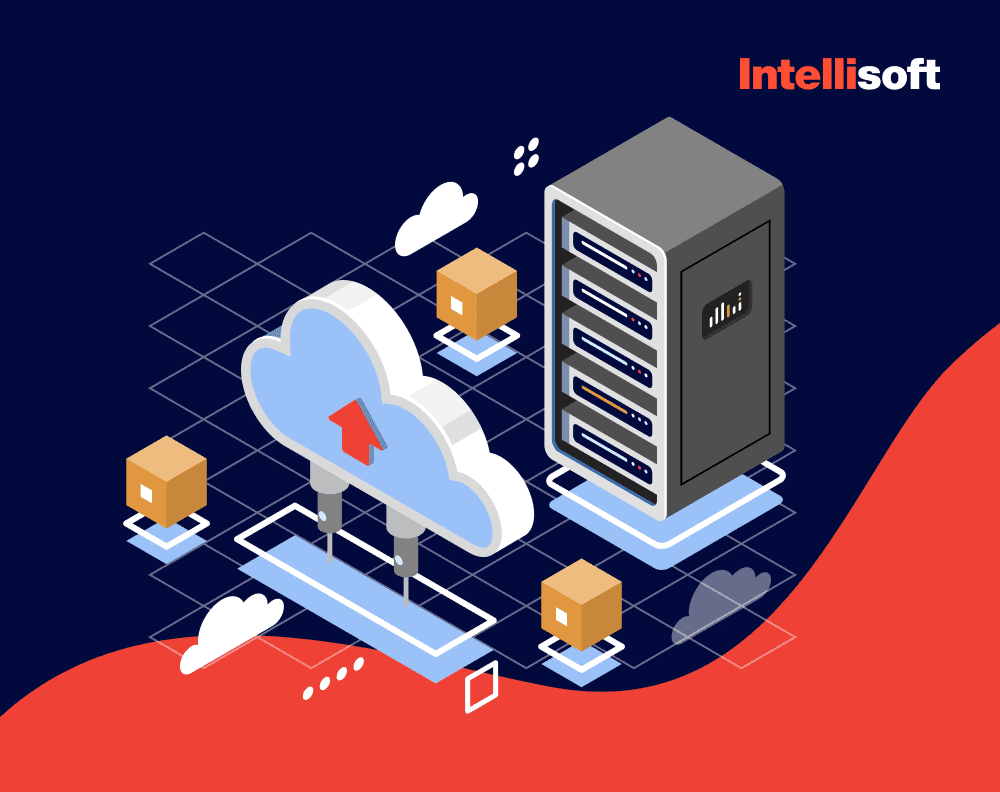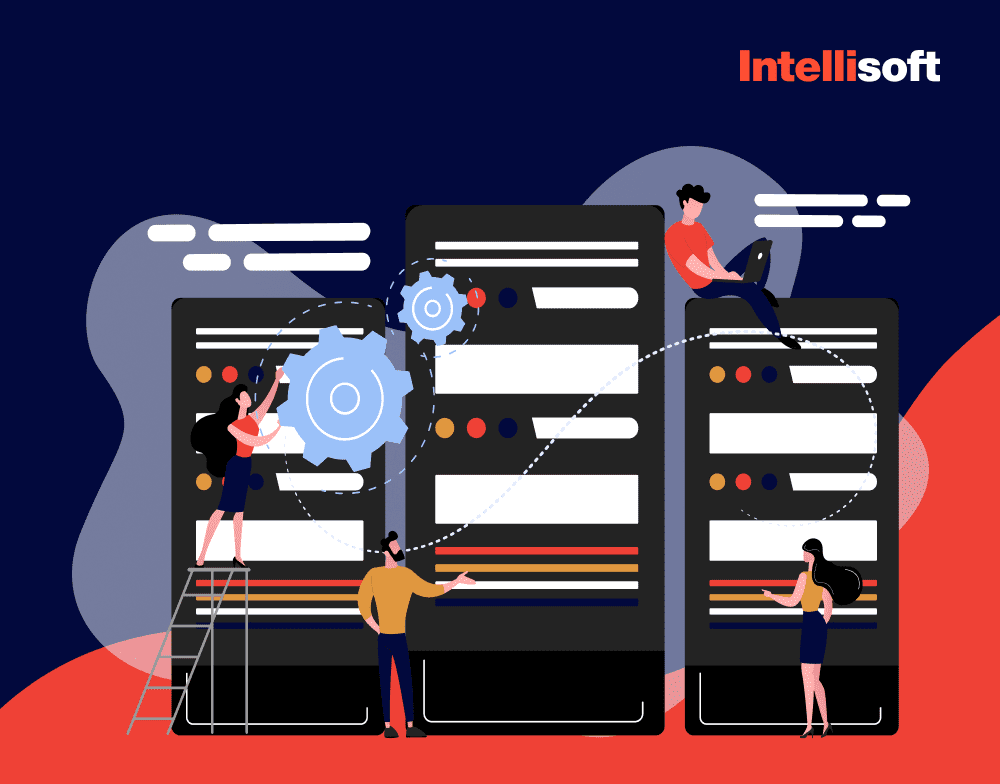Picture yourself in a digital boxing ring where two heavyweight cloud storage solutions – ownCloud and Nextcloud – are competing for the title of “Cloud Storage Champion.” As an audience member, you’re wondering which contender will emerge victorious and, more importantly, which one will be the perfect match for your business needs. It’s time we figure this out. Grab your popcorn and let IntelliSoft, your ringside commentator, walk you through this thrilling clash.
We’ve been in the IT game longer than most cloud services have been around. Our expertise in cloud computing is second to none, and we’ve helped businesses make the most of their IT infrastructure. Our experience with projects like the ZyLAB implementation is a testament to our cloud-savvy prowess.
In this article, we’ll answer the most common questions: what is ownCloud, what is Nextcloud, journey through the rich history of both platforms, explore their similarities, and dive into the key differences that set them apart.
We’ll also touch upon potential issues and bugs that you might encounter and provide you with troubleshooting tips to keep your cloud storage running smoothly. Finally, we’ll help you choose between Nextcloud and ownCloud by highlighting factors to consider when making your decision.
With IntelliSoft as your guide, you’ll not only witness this epic battle between ownCloud and Nextcloud review but also discover which one is the ultimate cloud storage solution for you. So, sit back, relax, and enjoy the ride as we unravel the mysteries of these two cloud storage titans.
Table of Contents
The History of ownCloud and Nextcloud
In the realm of cloud storage, ownCloud and Nextcloud are like two siblings with a shared heritage but different paths in life. To truly appreciate their respective strengths and weaknesses, we must first revisit their origins.
ownCloud’s Beginnings
In a world where cloud storage was dominated by proprietary services like Dropbox and Google Drive, ownCloud emerged in 2010 as a breath of fresh air. It was created by Frank Karlitschek, a visionary developer who sought to bring open-source freedom to the masses. ownCloud was designed to give users complete control over their data, offering a self-hosted alternative to big-name cloud providers.
The open-source community quickly embraced ownCloud, and it gained traction as a viable solution for businesses and individual users. With its user-friendly interface and robust feature set, ownCloud enabled users to store, sync, and share their files with ease. The platform offered extensibility through its apps ecosystem, allowing users to customize their ownCloud experience with additional functionality like calendars, contacts, and more.
As ownCloud’s popularity grew, so did its ambitions. The project attracted funding and eventually led to the establishment of ownCloud Inc., a company dedicated to providing commercial support and services for the platform. This marked a new chapter in ownCloud’s journey, as it sought to balance the needs of its open-source community with the demands of the enterprise market.
Nextcloud: A Fork of ownCloud
What is Next cloud? In 2016, the cloud storage world was shaken by a surprising turn of events. Frank Karlitschek, the creator of ownCloud, announced his departure from the company, citing concerns about the balance between the open-source project and its commercial interests. Soon after, he launched Nextcloud, a fork of ownCloud that aimed to stay true to the original vision of a fully open, community-driven cloud storage solution.
Nextcloud was born with a focus on transparency, collaboration, and a commitment to keeping its codebase 100% open-source. With many former ownCloud developers joining the Nextcloud project, the new platform rapidly evolved, incorporating improvements and innovations that set it apart from its predecessor.
Is Nextcloud open source? The answer is “yes.” Nextcloud’s philosophy resonated with the open-source community, and it quickly gained traction as an ownCloud alternative. In the years that followed, Nextcloud continued to refine its platform, adding new features, enhancing security, and fostering an ever-growing ecosystem of apps.
As Nextcloud matured, it also embraced the enterprise market, offering support and services for businesses looking to deploy a self-hosted cloud storage solution. However, unlike ownCloud, Nextcloud remained steadfast in its commitment to keeping its core platform entirely open-source, with no proprietary components or restrictions.
Now that we’ve unraveled the tangled roots of ownCloud and Nextcloud, let’s examine how these two cloud storage contenders stack up against each other.
At first glance, ownCloud and Nextcloud might seem like identical twins, sharing many features and even a similar user interface. However, as we dig deeper, we’ll discover that each platform has its own unique traits that set it apart.
Nextcloud vs ownCloud: Similarities
As we continue our exploration of ownCloud and Nextcloud, it’s essential to acknowledge their shared lineage and the striking similarities that bind them together. After all, before we can truly appreciate their differences, we must first understand what unites them. Let’s discuss their common features, focusing on file syncing and sharing, security, and collaborative tools.
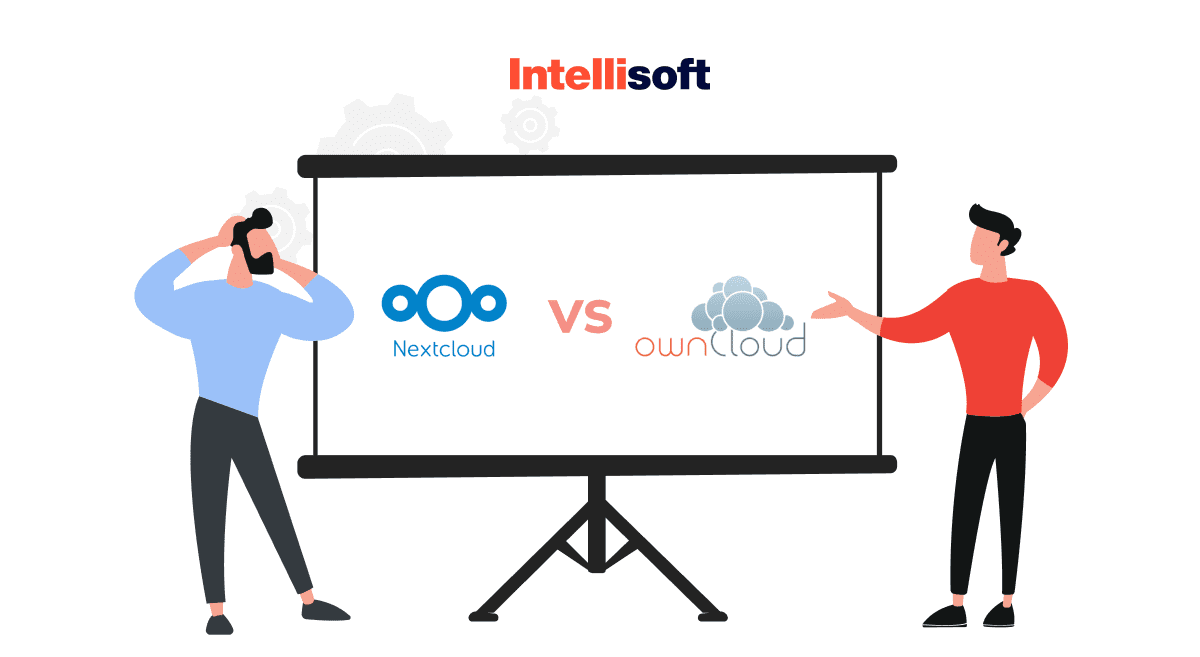
File Syncing and Sharing
At the core of both ownCloud and Nextcloud lies a powerful file-syncing and sharing engine. It’s no secret that this functionality is the beating heart of any cloud storage solution, and both platforms deliver a seamless experience for users across a variety of devices.
Desktop clients for Windows, macOS, and Linux are available, allowing users to sync their files effortlessly between their computers and the cloud. Additionally, mobile apps for Android and iOS devices offer on-the-go access to your files, ensuring that your data is always at your fingertips.
Sharing is a breeze on both platforms, with users able to create public or private links to files and folders, set expiration dates, and even enforce password protection. Granular permissions control allows users to define access levels for shared items, such as read-only, read-write, or full control.
As you can see, ownCloud and Nextcloud are virtually indistinguishable when it comes to file-syncing and sharing. They offer a solid foundation for users seeking a self-hosted cloud storage solution.
Security Features
In the digital world, security has always been paramount. Recognizing this, both ownCloud and Nextcloud have made significant investments in ensuring that their platforms provide secure conditions for storing and sharing your files.
For starters, data encryption is available on both platforms, with server-side encryption ensuring that your files are protected before they leave your device. Additionally, support for external key management systems and hardware security modules (HSM) offers advanced protection for organizations with stringent security requirements.
Two-factor authentication (2FA) is another crucial security feature offered by both platforms, adding an extra layer of protection to user accounts. By requiring a unique code generated by an authenticator app or sent via SMS, 2FA significantly reduces the risk of unsanctioned access to your cloud storage.
Both ownCloud and Nextcloud also provide robust access controls, enabling administrators to define and enforce user and group-based permissions. This granular control helps ensure that sensitive data is only accessible to authorized individuals.
By taking security very seriously, both ownCloud and Nextcloud provide a wide array of features designed to protect your data from unauthorized access and potential threats.
Collaborative Tools
Collaboration is an essential aspect of modern work and life, and both ownCloud and Nextcloud recognize this, offering a suite of collaborative tools to help users work together more effectively.
The built-in text editor, available on both platforms, allows users to create and edit documents directly within the web interface. Additionally, support for Markdown and collaborative editing features makes it easy for teams to work hand in hand on documents in real-time.
Both platforms offer file commenting, another useful feature, enabling users to leave comments on files and folders and facilitating discussion and collaboration around shared items. This simple yet powerful functionality helps keep conversations and feedback organized and easily accessible.
Calendar and contact management are also available on both ownCloud and Nextcloud, providing users with a centralized place to manage their schedules and contacts. Integration with popular email clients and mobile devices ensures that your calendar and contact data are always up-to-date and available when you need them.
OwnCloud and Nextcloud both offer a range of collaborative tools designed to help teams work together more effectively. While they may not be as versatile in terms of features as some proprietary solutions, they provide a solid foundation for users seeking a self-hosted alternative for collaboration and productivity.
Related readings:
- What is Cloud Computing? Understanding the Basics, Services and Benefits
- A Complete Guide to Cloud App Development: Key Steps & Costs
- What Are the Security Risks of Cloud Computing? Threats & Solutions
- Advantages of Using Kubernetes Containers in Your Product
Diving Deeper: Where ownCloud and Nextcloud Diverge
As we’ve explored the similarities between ownCloud and Nextcloud, it’s time to uncover the subtle differences that set these two platforms apart. Let’s examine such aspects as:
- Licensing
- Pricing
- Ecosystem
- User interface
- Documentation
- Security
- Community support
- Installation
- Integration
- Customizability
Licensing and Pricing
Is Nextcloud free vs paid? At first glance, both ownCloud and Nextcloud may appear to be free, open-source solutions. However, when it comes to licensing and pricing, there are some key differences.
While Nextcloud remains entirely open-source with no proprietary components offering free personal cloud and Enterprise support services starting at €3 per user per month, ownCloud has a dual-licensing model, offering both an open-source free community edition, €5 per user per month standard and an enterprise edition with additional features and support at €12 per user per month. Note that both platforms lower their prices for enterprise versions with a higher number of users in your cloud.
The enterprise edition of ownCloud comes with a subscription-based pricing model, which includes premium support, advanced security features, and access to enterprise-focused apps. On the other hand, Nextcloud offers support and enterprise services as separate subscriptions, ensuring that its core platform remains fully open-source and accessible to all users.
Ecosystem and Apps
Both ownCloud and Nextcloud boast an extensive ecosystem of apps, but Nextcloud has a slight edge when it comes to the number of available apps and the rate at which new apps are developed. It can be attributed to Nextcloud’s more active and engaged community, which has contributed to its rapid growth and innovation.
User Interface
While the user interfaces of ownCloud and Nextcloud are strikingly similar, Nextcloud has made some refinements to improve user experience. These improvements include a cleaner and more modern design, as well as more intuitive navigation, making it easier for users to find and access the features they need.
Documentation
Both ownCloud and Nextcloud offer comprehensive documentation, but our experts think that ownCloud has a slight advantage in terms of clarity and organization. The download documentation is generally easier to follow and provides more detailed guidance, making it more accessible to users of all experience levels. ownCloud offers a ready-to-deploy configuration file for enterprise use on its Docker documentation page. However, Nextcloud stores its configuration file separately on GitHub, which may be slightly less convenient to access.
Security
As mentioned earlier, both platforms prioritize security. Nextcloud security provides protection against brute force attacks, flow restrictions, password management, access permissions, end-to-end encryption, and other security measures. They also have an attractive bug bounty program that offers a reward of $10,000 for uncovering vulnerabilities.
On the other hand, ownCloud reserves some security features, such as the second generation of server encryption (E2EE), exclusively for its Enterprise edition. Users can try out the Enterprise version for 30 days at no cost to determine if these additional features are essential.
As you can see, Nextcloud has a slight edge due to its commitment to remaining 100% open-source. By making its entire codebase available for scrutiny, Nextcloud can benefit from the collective expertise of the open-source community, which helps identify and address potential security vulnerabilities more effectively.
Community Support
When it comes to community support, Nextcloud has the upper hand, with a more active and engaged community contributing to its development and providing support to fellow users. This vibrant community has fostered a more collaborative environment, which has helped Nextcloud innovate and grow at a faster pace than ownCloud.
Ease of Installation and Setup
Both ownCloud and Nextcloud offer a relatively straightforward installation process, but Nextcloud edges out its sibling with a slightly more streamlined setup experience. With clear documentation and more user-friendly installation scripts, Nextcloud makes it easier for users to get up and running with their self-hosted cloud storage solution.
Integration with Third-Party Services
Nextcloud and ownCloud both support integration with various third-party services, such as LDAP, SAML, and OAuth2, for authentication. However, Nextcloud has a broader range of supported integrations. Both Nextcloud and ownCloud integrate with popular services like Microsoft Office, Google Drive, and Dropbox. It enables users to access and modify files stored in these services directly through the Nextcloud or ownCloud interface.
Nevertheless, Nextcloud generally provides broader integration possibilities and a greater variety of available apps, which could make it a more attractive option for users who frequently depend on third-party services, such as Google Workspace and various video conferencing platforms.
Customizability and Extensibility
Let’s talk about the ownCloud vs Nextcloud performance. Both platforms offer a high degree of customizability and extensibility, but Nextcloud takes the lead with its more extensive app ecosystem and open-source philosophy. By providing a platform that is fully open-source and fostering a more active developer community, Nextcloud has created an environment where users can more easily tailor their cloud storage experience to suit their unique needs.
Take a look at a comparison table that highlights the key differences and similarities between these platforms:
| Feature/Aspect | ownCloud | Nextcloud |
| Licensing | Dual-licensing (Community Edition & Enterprise Edition) | Fully open-source |
| Pricing | Subscription-based for Enterprise Edition | Support and enterprise services available separately |
| Ecosystem & Apps | Extensive, but slightly smaller than Nextcloud | More extensive and growing faster |
| User Interface | Similar to Nextcloud, but slightly less refined | More modern and intuitive design |
| Documentation | Clearer and better-organized | Comprehensive, but less organized than ownCloud |
| Security | Robust, with additional features in Enterprise Edition | Slightly stronger due to fully open-source codebase |
| Community Support | Active, but less engaged than Nextcloud | More active and engaged community |
| Installation & Setup | Straightforward, but slightly less streamlined than Nextcloud | Easier and more user-friendly |
| Third-Party Integrations | Supports various integrations, but fewer than Nextcloud | Broader range of supported integrations |
| Customizability & Extensibility | High, but less than Nextcloud due to licensing model | Higher due to fully open-source nature and more active app ecosystem |
Note that both platforms are continuously evolving, and the information presented here may change over time.
Potential Issues or Bugs
When working with ownCloud or Nextcloud, you may encounter some issues or bugs, as with any software. Don’t worry, though, because we’re here to help you navigate these potential problems and provide you with some troubleshooting tips. We’ll take a look at common problems and offer guidance on how to resolve them, so you can get back to using your cloud storage solution smoothly.
Common Problems and Troubleshooting Tips
Syncing Issues
One of the main features of both ownCloud and Nextcloud is file synchronization. However, syncing problems can sometimes occur, such as files not uploading, syncing conflicts, or slow sync performance.
- It is essential to ensure that your internet connection is stable.
- Verify that the server is running and accessible.
- Make sure you’re using the latest versions of the ownCloud or Nextcloud client and server software.
- Ensure that your local files and folders have the correct permissions.
- For syncing conflicts, examine the conflicting files and manually resolve any discrepancies between the versions.
Access and Permission Problems
You might face issues with access to shared folders, files not being accessible, or incorrect permissions being applied to users or groups.
- Double-check the sharing settings for the affected files or folders.
- Verify that the correct permissions are applied to the users or groups involved.
- Confirm that the users experiencing problems are members of the appropriate groups.
- If using external storage, ensure that the storage is correctly configured and accessible.
Server Configuration Issues
Problems with server configurations can lead to a range of issues, such as being unable to connect to the server, failed updates, or problems with app installations.
- Review your server configuration and compare it to the recommended settings provided in the ownCloud or Nextcloud documentation.
- Review the server logs for any error messages or warnings, which can provide valuable information for troubleshooting.
- If you encounter issues with app installations or updates, ensure that the server meets the app’s requirements and that all dependencies are installed.
Login/Authentication Problems
Users might encounter difficulties logging in or authenticating themselves, or they may be locked out of their accounts.
- Ensure that the username and password are entered correctly.
- If using two-factor authentication, verify that the appropriate authentication method is enabled and configured correctly.
- Check the server logs for any authentication-related error messages.
- In case you have been locked out of your account, contact your server administrator for assistance.
Performance Issues
Both ownCloud and Nextcloud users can experience slow performance, which can include a sluggish user interface, slow file transfers, or high server resource usage.
- Review your server’s resource usage, such as CPU, memory, and disk space, to identify any bottlenecks or resource constraints.
- Optimize your server’s configuration settings for better performance, following the recommendations in the ownCloud or Nextcloud documentation.
- If using external storage, check the performance and latency of the storage provider.
- For slow file transfers, investigate any network-related issues or bandwidth limitations.
Remember, when troubleshooting, it’s essential to remain patient and systematic. Start by checking the most obvious factors and then move on to more complex possibilities. Consult the ownCloud or Nextcloud documentation, as well as community forums, for additional guidance and support. As you gain more experience with these platforms, you’ll develop a better understanding of their intricacies and become more adept at resolving issues.
Which One Do You Choose? Nextcloud or ownCloud?
Now that we’ve taken a deep dive into the world of ownCloud and Nextcloud, comparing their features, differences, and potential issues, it’s time to make a decision. Which cloud storage solution is the right one for you? To help you decide, let’s consider some crucial factors that will guide you in making the best choice for your specific needs.
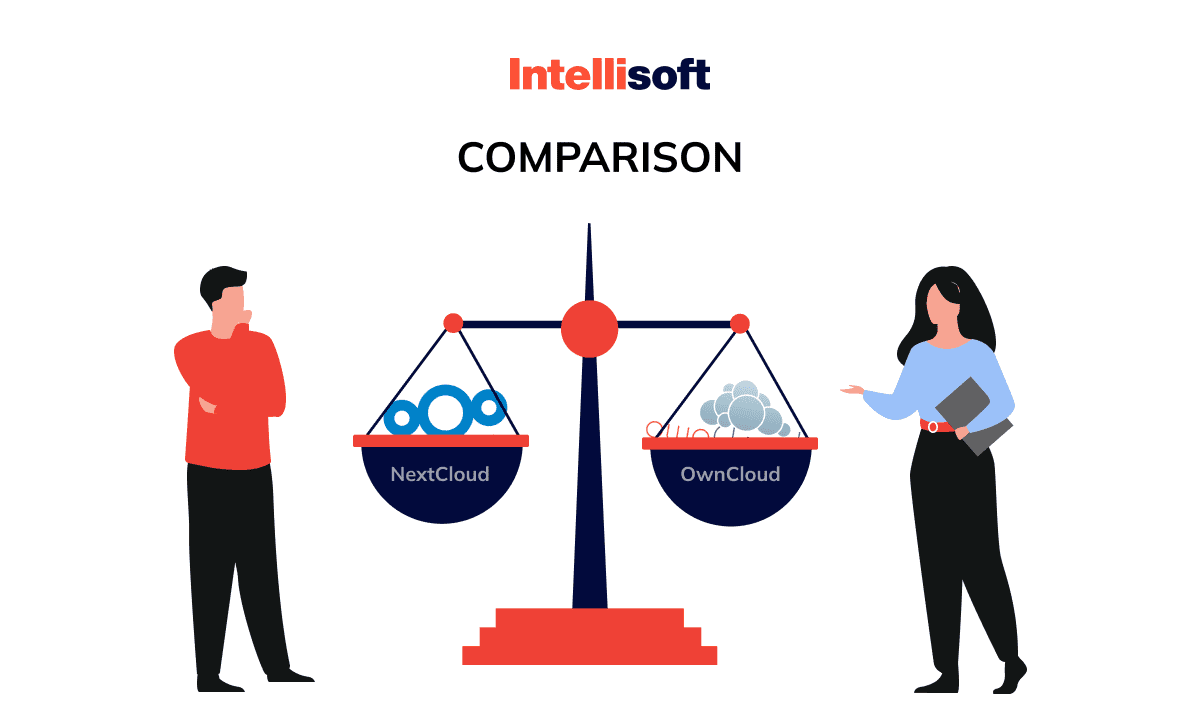
Factors to Consider
Your Use Case
Start by evaluating what you want to achieve with your cloud storage solution. Are you looking for a simple file storage and sharing platform, or do you require more advanced collaboration and productivity tools? Both ownCloud and Nextcloud offer a range of features, but Nextcloud generally has a broader selection of integrated apps, making it better suited for those seeking a comprehensive suite of tools. If you primarily need a secure file syncing and sharing solution, ownCloud may be the more straightforward option.
Your Budget
As with any technology investment, it’s essential to consider your budget when choosing between ownCloud and Nextcloud. Both platforms offer free, open-source versions that you can self-host, but their enterprise offerings differ. OwnCloud has a subscription-based model for its enterprise edition, while Nextcloud offers a pay-per-use model based on the number of users.
The best choice for your organization will depend on your financial resources and the size of your user base. If you’re on a tight budget, starting with the open-source versions and later upgrading to an enterprise plan when needed might be a sensible approach.
Your Technical Expertise
Both ownCloud and Nextcloud require some level of technical knowledge to set up and maintain, particularly if you’re self-hosting.
Evaluate your team’s technical expertise and the amount of time you’re willing to invest in managing your cloud storage solution. Nextcloud is often considered easier to install and manage, particularly for non-technical users.
However, if your team has the necessary skills, ownCloud’s flexibility and customizability might be more appealing. Additionally, if you don’t have the resources to self-host, you can consider using a managed hosting provider for either ownCloud or Nextcloud.
Now we can take a closer look at how these factors apply when it comes to the size of your organization.
The Size of Your Organization
Individuals and Small Teams
If you’re an individual or part of a small team that primarily needs secure file storage and sharing, ownCloud might be the better choice due to its simplicity and focus on file syncing. However, if you require more advanced collaboration tools, such as real-time document editing and project management, Nextcloud may be the better fit.
Medium to Large Organizations
Nextcloud’s extensive app ecosystem and broader feature set might be more suitable for larger organizations with diverse needs. Additionally, Nextcloud’s scalability and flexibility make it a better option for growing organizations.
Compliance and Security-Sensitive Industries
Both ownCloud and Nextcloud have robust security features, but ownCloud’s enterprise edition offers additional security and compliance features designed for organizations in regulated industries. If your organization is subject to strict compliance requirements, ownCloud may be a better Nextcloud alternative.
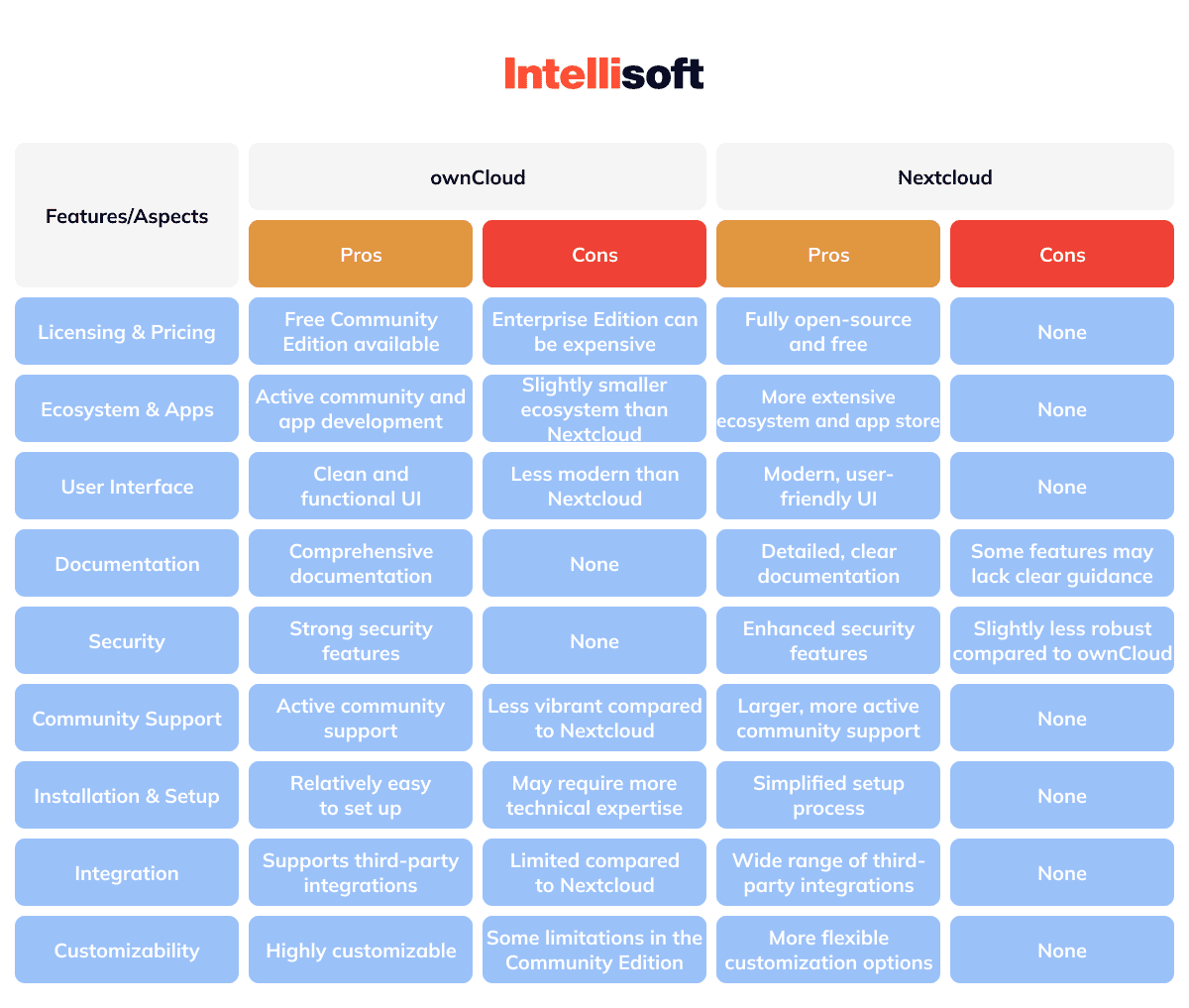
Choosing between ownCloud and Nextcloud ultimately comes down to your specific requirements, budget, and technical expertise.
Both platforms have their strengths and cater to different user needs. By thoroughly considering the factors discussed in this chapter, you can make an informed decision and select the cloud storage solution that best aligns with your goals and resources.
Conclusion
Remember, there’s no one-size-fits-all answer when you seek advice on choosing between ownCloud and Nextcloud. Your choice must depend on your unique situation, and it’s essential to invest time in understanding your needs before making a decision. Whichever platform you choose, you’ll be joining a thriving community of users who value privacy, security, and collaboration. So, take your time, do your research, and embrace the power of cloud storage with either ownCloud or Nextcloud.
IntelliSoft, with its vast experience in cloud application development can help you implement the best cloud solution for your organization. Our team offers a full range of software development services. By partnering with IntelliSoft, you can reduce operating expenses, achieve faster time-to-market, and enhance your organization’s efficiency.
Whether you choose Nextcloud, ownCloud, or any other cloud solution, IntelliSoft is ready to assist you in unlocking your business’s full potential. Reach out to our specialists for more information and discuss your requirements or assess your investments with our development team cost calculator and take the first step on your way to a successful cloud implementation.

